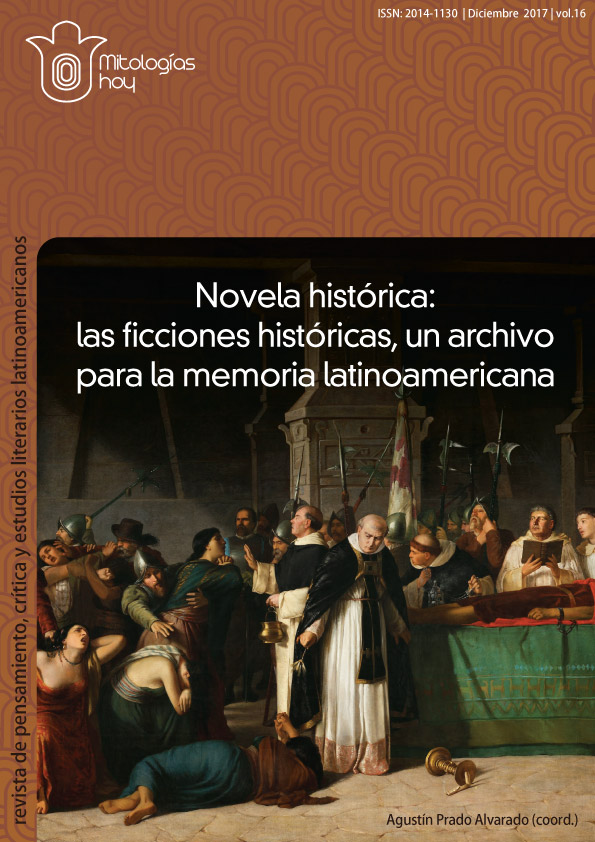Recuerdo de una posibilidad: articulaciones afectivas de Historia y memoria en "Tirana memoria" de Horacio Castellanos Moya
Article Sidebar

Main Article Content
Tirana memoria (2008), la novena novela del narrador salvadoreño Horacio Castellanos Moya, anuda en su trama la historia de los eventos ocurridos en 1944 en El Salvador, con una historia familiar, varias historias íntimas y memorias personales. La articulación entrecruzada de historia(s), memoria(s) y cuadros de percepción subjetiva configura un entramado complejo y ambivalente de perspectivas, visiones y afectos. Este ensayo examina las operaciones y los efectos de este entrecruzamiento ficcional de la historia nacional con la historia/memoria familiar, personal e íntima. Plantea que el intercambio bidireccional y correctivo entre memoria e historia, cuando es iluminado por medio de dispositivos ficcionales, revela emociones ocasionadas por los acontecimientos históricos narrados, en las cuales se cifra el sentido del pasado.
Article Details
Derechos de autor
Authors who publish with this journal agree to the following terms:- Authors retain copyright.
- The texts published in this journal are – unless indicated otherwise – covered by the Creative Commons Spain Attribution 3.0 licence. You may copy, distribute, transmit and adapt the work, provided you attribute it (authorship, journal name, publisher) in the manner specified by the author(s) or licensor(s). The full text of the licence can be consulted here: http://creativecommons.org/licenses/by/3.0/es/deed.en.
- Authors are able to enter into separate, additional contractual arrangements for the non-exclusive distribution of the journal's published version of the work (e.g., post it to an institutional repository or publish it in a book), with an acknowledgement of its initial publication in this journal.
- Authors are permitted and encouraged to post their work online (e.g., in institutional repositories or on their website) prior to and during the submission process, as it can lead to productive exchanges, as well as earlier and greater citation of published work (See The Effect of Open Access).
Magdalena Perkowska, Hunter College/The Graduate Center, CUNY
Catedratica (Full Professor)
Hunter College, CUNY, Department of Romance Languages
The Graduate Center, CUNY, Ph.D. Program in Hispanic and Luso-Brazilian Literatures and Languages